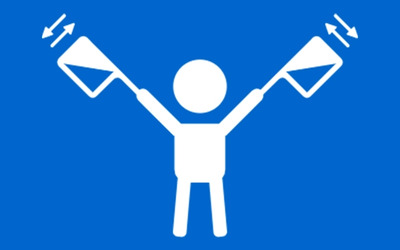Futures Design, Language and Systems – Towards languaging pluriversal futures
Dudani, Palak and Morrison, Andrew (2020) Futures Design, Language and Systems – Towards languaging pluriversal futures. In: Proceedings of Relating Systems Thinking and Design (RSD9) 2020 Symposium., 9-17 Oct 2020, Ahmedabad, India.
Preview |
Text
Dudani_Futures_RSD9_2020.pdf Available under License Creative Commons Attribution Non-commercial No Derivatives. Download (91kB) | Preview |
![Dudani_Futures_RSD9_2020.png [thumbnail of Dudani_Futures_RSD9_2020.png]](https://openresearch.ocadu.ca/3620/2.hassmallThumbnailVersion/Dudani_Futures_RSD9_2020.png)  Preview |
Image
Dudani_Futures_RSD9_2020.png Available under License Creative Commons Attribution Non-commercial No Derivatives. Download (42kB) | Preview |
Abstract
Introduction
Words and language are inextricably linked with a designer’s ability to shape futures, both productively and analytically. In this workshop, the participants will be introduced to a suite of tools curated for an exploration into the role of language within futures design projects. This workshop aims to build an understanding towards ‘languaging’ of futures and open a systems-level enquiry into challenges of imagining alternative and pluriversal futures within design.
Fuel4Design is a three year Erasmus + Project (www.fuel4design.org) and this workshop will build on the work done within its first work package called ‘A Lexicon of Design Futures Literacies’.
Design, Language, Futures and Systems
Complex relations between systems, knowledge and action need to be shaped while examining and working towards transforming those very relations for the better. Previously solution-centric, formalist and modernist notions of planning and prediction and design progress are inadequate for responding to a world that needs what we term ‘urgent design’ (Morrison 2019b). There is a need for Design to rapidly and responsibly address ways to work with survivable, sustainable futures (Fry, 2009) and their ongoing participative enactment.
Working towards shaping shared futures is crucial when it’s about systemic transition with a focus on wellbeing. There is an inherent connection between multimodal design and multisensory futures, especially when focusing on plurality/multiplicity of futures. This is a matter of working towards futures, not simply planning nor prediction.
Words convey and communicate our designs for and about the futures; those designed futures also impact on how we use terms and concepts, definitions and expressions in our wider design discourse. As designers we use language to be able to describe, define, annotate, orient, critique and interpret our actions, processes, partnerings and products. As words are situated in communities of practice and use, it’s important to bring focus on the language we use through our design vocabulary. How design goes about ‘languaging the future’ is then likely to become all the more important.
The Workshop
This workshop deals with the topic of Futures Design, with a focus on how we as designers ‘language’ this future. Early versions of this workshop have been conducted with doctoral researchers at Oslo School of Architecture and Design and PoliMi (as a part of their summer school). This three-hour workshop has been modified for professionals. Its purpose is to position the topic of ‘languaging the future’ from a systemic point of view and open it up for discussion through self-reflexive activities consisting of reading, writing and web-based interactives. The workshop will accept a maximum of 20 participants and will take place in four phases.
Conclusion
The workshop raises questions of language discourses, issues of mediations and representations, especially when working on futures with systemic implications. It leaves the participants with the knowledge of vocabulary, framing and languaging of the ‘pluriversal futures’. As experienced with the interactive tool ‘reflexicovid’, the workshop not only deals with the issues of the present thrown into the speculations of ‘futures’, but also brings the questions of futures into the present.
| Item Type: | Conference/Workshop Item (Other) |
|---|---|
| Divisions: | Faculty of Design |
| Date Deposited: | 04 May 2022 20:40 |
| Last Modified: | 04 May 2022 20:45 |
| URI: | https://openresearch.ocadu.ca/id/eprint/3620 |
Actions (login required)
 |
Edit View |

 Tools
Tools Tools
Tools